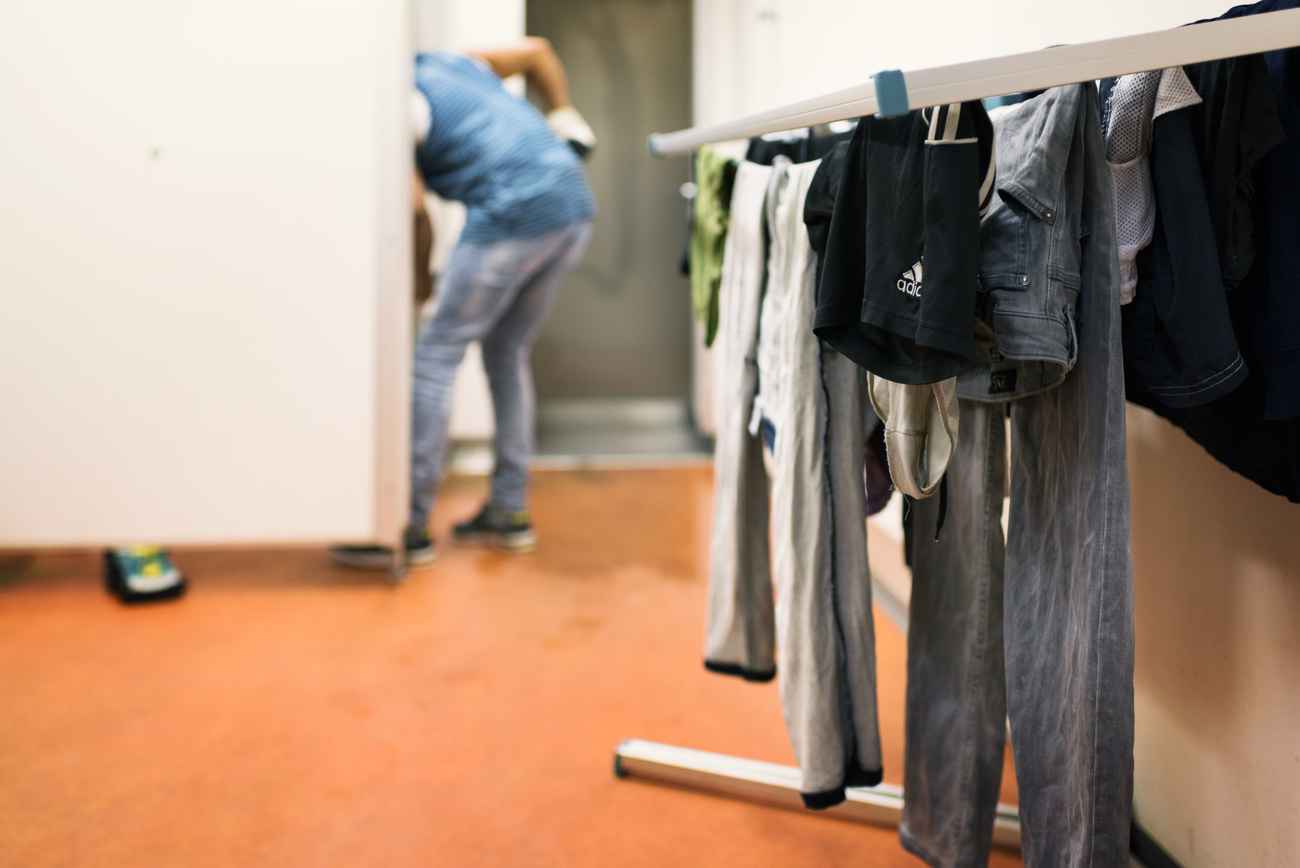
More men being identified as trafficking victims in Switzerland

More and more men are becoming victims of human trafficking in Switzerland. This is the finding of Plateforme Traite, the Swiss Platform against Human Trafficking which, since 2020 has brought together the four specialised agencies that provide counselling and assistance to trafficking victims.
As the platform announced on Wednesday, on the occasion of the European Day against Human Trafficking, the four Swiss specialised agencies identified 177 new victims of human trafficking in Switzerland in 2022. This is 30 fewer than in the previous year.
Of these 177 persons, 136 were women and 41 were men. This corresponds to a male share of 23%. In 2019, the proportion of men among newly identified victims was just 9%.
Platform coordinator Anna Schmid said in response to a question that wherever one looks, there can be victims of trafficking. For a long time, human trafficking in Switzerland was mainly associated with prostitution and the exploitation of women. Police investigations also tended to focus on this area.
Now there is a greater awareness that exploitation also takes place in other areas and that men can also be victims. Overall, however, the majority of those affected are still women, the platform writes in its statement.
More people seeking help than ever before
The 177 newly identified victims are among the 324 people who turned to the four specialised agencies for help in 2022 or were referred to them by partner organisations or the authorities because there was a suspicion of human trafficking. Never before have so many people turned to the four specialised agencies.
In total, they assisted 450 victims of human trafficking last year. This number includes victims identified in previous years who still needed assistance. The most common countries of origin in 2022 were Hungary, Brazil, Colombia and Romania.
More labour exploitation
In terms of forms of exploitation, the platform distinguishes between sexual exploitation and labour exploitation. The share of victims in the second category increased to 44% last year. The year before, it was 33%.
Labour exploitation also includes victims who were forced into illegal acts, such as theft or drug smuggling. Labour exploitation mainly took place in private households, in the catering industry and in construction.
Plateforme Traite sees the increase in cases of human trafficking for labour exploitation as the result of awareness-raising work, for example among trade unions and labour inspectors. However, further awareness-raising measures are necessary.
This news story has been written and carefully fact-checked by an external editorial team. At SWI swissinfo.ch we select the most relevant news for an international audience and use automatic translation tools such as DeepL to translate it into English. Providing you with automatically translated news gives us the time to write more in-depth articles. You can find them here.
If you want to know more about how we work, have a look here, and if you have feedback on this news story please write to english@swissinfo.ch.

In compliance with the JTI standards
More: SWI swissinfo.ch certified by the Journalism Trust Initiative


















![The four-metre-long painting "Sonntag der Bergbauern" [Sunday of the Mountain Farmers, 1923-24/26] had to be removed by a crane from the German Chancellery in Berlin for the exhibition in Bern.](https://www.swissinfo.ch/content/wp-content/uploads/sites/13/2025/12/01_Pressebild_KirchnerxKirchner.jpg?ver=1ea8acae)










You can find an overview of ongoing debates with our journalists here . Please join us!
If you want to start a conversation about a topic raised in this article or want to report factual errors, email us at english@swissinfo.ch.